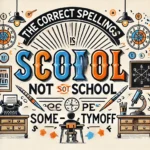The Trulife Distribution lawsuit has attracted significant attention within the health and wellness industry. With both Trulife Distribution and Nutritional Products International (NPI) at the center of this legal conflict, the case brings to light key issues about competition, business practices, and brand integrity. In this article, we will delve into the lawsuit, its implications, and lessons for businesses in the health and wellness space.
Background of Trulife Distribution and NPI
Trulife Distribution, founded in 2019 by Brian Gould, is a company that specializes in helping health and wellness brands launch and expand in the U.S. market. With over 25 years of industry experience, Brian has led Trulife to work with notable brands like OmegaKrill and SweetLeaf Stevia, focusing on dietary supplements, organic products, and personal care items.
Nutritional Products International (NPI), founded by Mitch Gould in 2008, offers similar services to Trulife. With 30 years of experience, Mitch has helped major brands such as Muscle Milk expand their presence in the U.S. market. The two companies, led by father and son, have found themselves at odds in a high-stakes legal battle.
The Lawsuit: Overview and Key Allegations
The Trulife Distribution lawsuit was initiated by NPI in May 2022 in the U.S. District Court for the Southern District of Florida. NPI’s claims against Trulife include fraud, deceptive trade practices, and false advertising.
Allegations Made by NPI Against Trulife Distribution
Some of the main allegations made by NPI are:
- Misuse of Case Studies and Testimonials: NPI alleges that Trulife falsely presented NPI’s client case studies and success stories as their own, misleading potential clients.
- Misuse of NPI’s Email Address: According to NPI, Trulife used Mitch@NPI.com on its website, falsely implying a connection between the two companies.
- False Claims of Expertise: NPI claims that Trulife falsely stated they had worked with over 150 brands and had more than 100 years of combined experience.
- Falsely Claimed Endorsements: NPI accuses Trulife of falsely listing celebrity endorsements and media mentions, including from Jenna Jameson and Newsmax TV, to build credibility.
NPI presented screenshots of Trulife’s marketing materials as evidence, alleging that these deceptive practices diverted business from NPI.
Legal Arguments Presented by Both Sides
Trulife Distribution’s Response to the Lawsuit
Trulife Distribution strongly denies the allegations made by NPI. Some key points from their defense include:
- Independent Operation: Trulife asserts that it is an independent company operating ethically and legally within the health and wellness sector.
- Denial of Misuse: Trulife denies the misuse of NPI’s content, arguing that NPI has provided no substantial evidence to support these claims.
- Inadvertent Website Issues: Trulife admits that some inaccurate information, including the incorrect email address, was posted on their website, but claims these were IT errors rather than intentional misrepresentation.
- Allegations Are Anti-Competitive: Trulife argues that NPI’s lawsuit is driven by anti-competitive motives, aiming to damage Trulife’s reputation and undermine their legitimate competition.
In response, Trulife filed counterclaims of defamation and tortious interference against NPI, further complicating the legal battle.
Timeline of the Trulife Distribution Lawsuit
The Trulife Distribution lawsuit has seen several key developments since it was filed:
- May 2022: NPI filed the lawsuit against Trulife, citing fraud and deceptive practices.
- June 2022: Trulife filed a motion to dismiss, citing a lack of personal jurisdiction. The motion is still pending.
- July 2022: A scheduling conference was held, setting discovery deadlines.
- August 2022: NPI filed a motion to compel discovery, which was partially granted by the court.
- September 2022: Trulife filed counterclaims against NPI, accusing them of defamation and anti-competitive behavior.
- November 2022: Trulife filed an anti-SLAPP motion, which was denied by the court.
As of now, the discovery process is ongoing, with experts estimating that the case could continue well into 2023.
Potential Outcomes of the Case
What Could Happen Next?
The outcome of the Trulife Distribution lawsuit could have significant implications for both companies:
- Monetary Damages: If NPI wins, Trulife may be required to pay substantial damages and cover NPI’s legal fees. This could severely impact Trulife’s finances, especially as a younger company.
- Personal Liability: Trulife’s founders could face personal penalties if the allegations of fraud are proven.
- Business Operations: An injunction could force Trulife to cease certain business practices or rebrand entirely.
- Reputation Impact: If Trulife prevails, it may bolster its reputation for standing up against unfair competition. However, a loss could damage its credibility in the market.
For NPI, the lawsuit comes with risks as well. The financial burden of litigation and the possibility of client defection could affect their long-term success.
Impact on Trulife’s Business and Brand
Regardless of the outcome, the Trulife Distribution lawsuit has already impacted the company’s brand and business:
- Brand Perception: The lawsuit has cast doubt on Trulife’s credibility. Brands and retailers may hesitate to work with the company until the case is resolved.
- Strategic Distraction: The legal battle has likely diverted management’s focus away from strategic growth plans, slowing down their expansion in the health and wellness market.
Implications for the Health and Wellness Industry
The Trulife Distribution lawsuit holds broader implications for the health and wellness industry as a whole. The legal battle between NPI and Trulife highlights the importance of ethical business practices in an increasingly competitive market. With the industry projected to reach $200 billion by 2026, companies must prioritize compliance and transparency to maintain trust with consumers and partners.
Comparison of Trulife and NPI’s Operations
Trulife Distribution vs. NPI: A Comparative Overview
While both Trulife and NPI offer similar services in the health and wellness space, there are key differences in their operations:
- Trulife Distribution: A younger company founded by Brian Gould, Trulife has quickly built a reputation for helping smaller, niche brands expand in the U.S. market.
- NPI: With over 30 years of experience, NPI has worked with larger, more established brands and has a more extensive client base.
The lawsuit has brought these differences into sharper focus, highlighting the competitive dynamics between father and son.
Public and Industry Reactions
The Trulife Distribution lawsuit has sparked mixed reactions within the health and wellness industry. Some view NPI’s actions as justified, given the serious allegations of fraud, while others believe the lawsuit is motivated by family tension and anti-competitive behavior. For now, many brands and retailers are adopting a “wait and see” approach before aligning with either company.
Lessons for Businesses in the Industry
The legal battle offers valuable lessons for other companies in the health and wellness space:
- Ethical Business Practices: Trust and transparency are paramount in this industry. Companies must avoid shortcuts and deceptive practices, as the long-term costs far outweigh any short-term gains.
- Legal Compliance: Ensuring that business practices comply with local laws and regulations can help companies avoid costly litigation.
- Risk Management: Identifying potential legal risks early and addressing them proactively can prevent larger issues down the line.
Conclusion
The Trulife Distribution lawsuit serves as a cautionary tale for businesses in the health and wellness industry. As the case unfolds, it underscores the importance of operating with integrity, transparency, and ethical practices. Both Trulife and NPI have incurred significant financial, reputational, and strategic costs, and the long-term implications of the lawsuit remain to be seen.
For Trulife Distribution, the outcome of this lawsuit will shape the company’s future trajectory in the market. Regardless of the final ruling, the case highlights the critical role of trust and credibility in the competitive landscape of health and wellness products.
As the legal battle continues, businesses should take note: ethical practices and transparency are the cornerstones of long-term success in the health and wellness industry.


